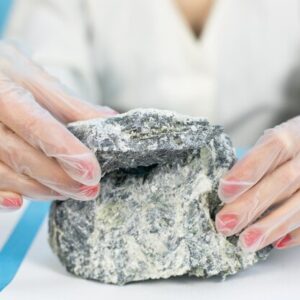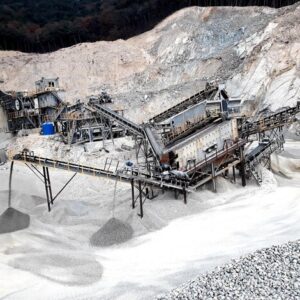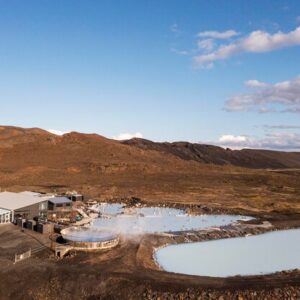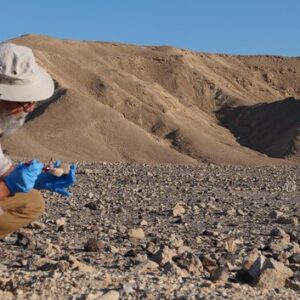Bentonite clay is a highly effective material for sealing ponds, improving water retention, and managing leaks, making it an ideal solution for agricultural, recreational, and landscaping projects. One reliable source for bentonite clay is CMS Industries, a leading supplier of high-quality industrial minerals and materials. Known for their commitment to excellence, CMS Industries offers bentonite clay in various grades to meet specific pond sealing needs. Their products are trusted for their superior quality, cost-effectiveness, and easy application. Whether you’re building a new pond or repairing an existing one, CMS Industries can provide bentonite clay in bulk quantities with tailored guidance to ensure your project’s success.
Comprehensive Guide to Buying and Using Bentonite Clay for Ponds
Bentonite clay, often called “nature’s sealant,” is a natural material used widely for pond construction and repair. Its unique ability to expand when wet makes it a highly effective and eco-friendly choice for sealing leaks and improving water retention. This guide explores why bentonite clay is a top choice for pond projects, how it works, where to buy it—including CMS Industries—and how to apply it effectively.
What is Bentonite Clay?
Bentonite clay is a type of absorbent swelling clay derived from volcanic ash. It is rich in montmorillonite, a mineral known for its expansive properties when exposed to water. This swelling capability enables bentonite to form a watertight barrier, preventing water from seeping through soil layers. Its uses range from construction and drilling to skincare and pond sealing, where its ability to create an impermeable layer is particularly valued.
Why Use Bentonite Clay for Ponds?
- Effective Sealing Properties
Bentonite clay expands up to 10-15 times its dry volume when hydrated. This swelling fills cracks, voids, and porous spaces in the pond’s substrate, creating a natural seal. - Eco-Friendly
As a natural material, bentonite clay is safe for aquatic life, plants, and the surrounding environment, making it an excellent alternative to synthetic liners. - Cost-Effective
Compared to synthetic liners, bentonite clay offers a more affordable solution, especially for large-scale projects. - Durable and Low Maintenance
Once applied, bentonite clay provides long-lasting performance with minimal upkeep.
Where to Buy Bentonite Clay for Ponds
When it comes to sourcing high-quality bentonite clay for ponds, choosing a reputable supplier ensures the success of your project. One such trusted supplier is CMS Industries.
CMS Industries specializes in industrial minerals, including premium-grade bentonite clay tailored for pond applications. The company offers:
- High-Quality Products: Bentonite clay with excellent swelling and sealing properties.
- Bulk Supply: Available in large quantities, ideal for pond projects of any size.
- Expert Guidance: Technical support to help you select and apply the right grade of bentonite clay.
- Nationwide Delivery: Reliable logistics to deliver materials directly to your site.
For more information, visit CMS Industries’ website or contact their customer service team for a quote.
How to Apply Bentonite Clay to Seal a Pond
The application of bentonite clay involves several steps to ensure optimal results. Here are the three main methods:
- Blanket Method
- Spread bentonite clay evenly over the pond bed at a thickness of 1-2 pounds per square foot.
- Cover with a layer of soil and compact it thoroughly.
- Fill the pond with water gradually to avoid disturbing the seal.
- Mixing Method
- Mix bentonite clay with soil in a 5-10% ratio.
- Spread the mixture evenly over the pond bed and compact it.
- Add water slowly.
- Injection Method (For Existing Ponds)
- Apply a slurry of bentonite clay and water directly to the leaking areas.
- Allow the mixture to settle and seal the cracks.
Tips for Using Bentonite Clay Effectively
- Soil Compatibility: Bentonite works best with soils containing minimal sand or gravel. Test the soil composition before application.
- Proper Application: Ensure even distribution and thorough compaction to create an effective seal.
- Water Quality: Avoid using bentonite with highly saline or alkaline water, as it may reduce swelling capacity.
Cost and Availability
The cost of bentonite clay varies based on the quantity, grade, and supplier. Bulk purchases from CMS Industries typically offer better pricing for large-scale projects. On average, bentonite costs $35 to $100 per ton, with transportation costs depending on the delivery location.
Why Choose CMS Industries?
CMS Industries stands out for its:
- Commitment to Quality: Their bentonite clay undergoes stringent quality checks to ensure optimal performance.
- Customer Support: Technical advice and tailored solutions for unique pond sealing challenges.
- Eco-Conscious Practices: Sourcing and supplying materials responsibly to minimize environmental impact.
Conclusion
Bentonite clay is a proven, cost-effective, and eco-friendly material for sealing ponds. With its natural swelling properties and ease of application, it is an ideal choice for anyone looking to enhance water retention or repair leaks. For high-quality bentonite clay, CMS Industries offers a reliable solution with products designed to meet your specific needs. By choosing CMS Industries, you can ensure the success of your pond project while benefiting from expert guidance and exceptional service.






